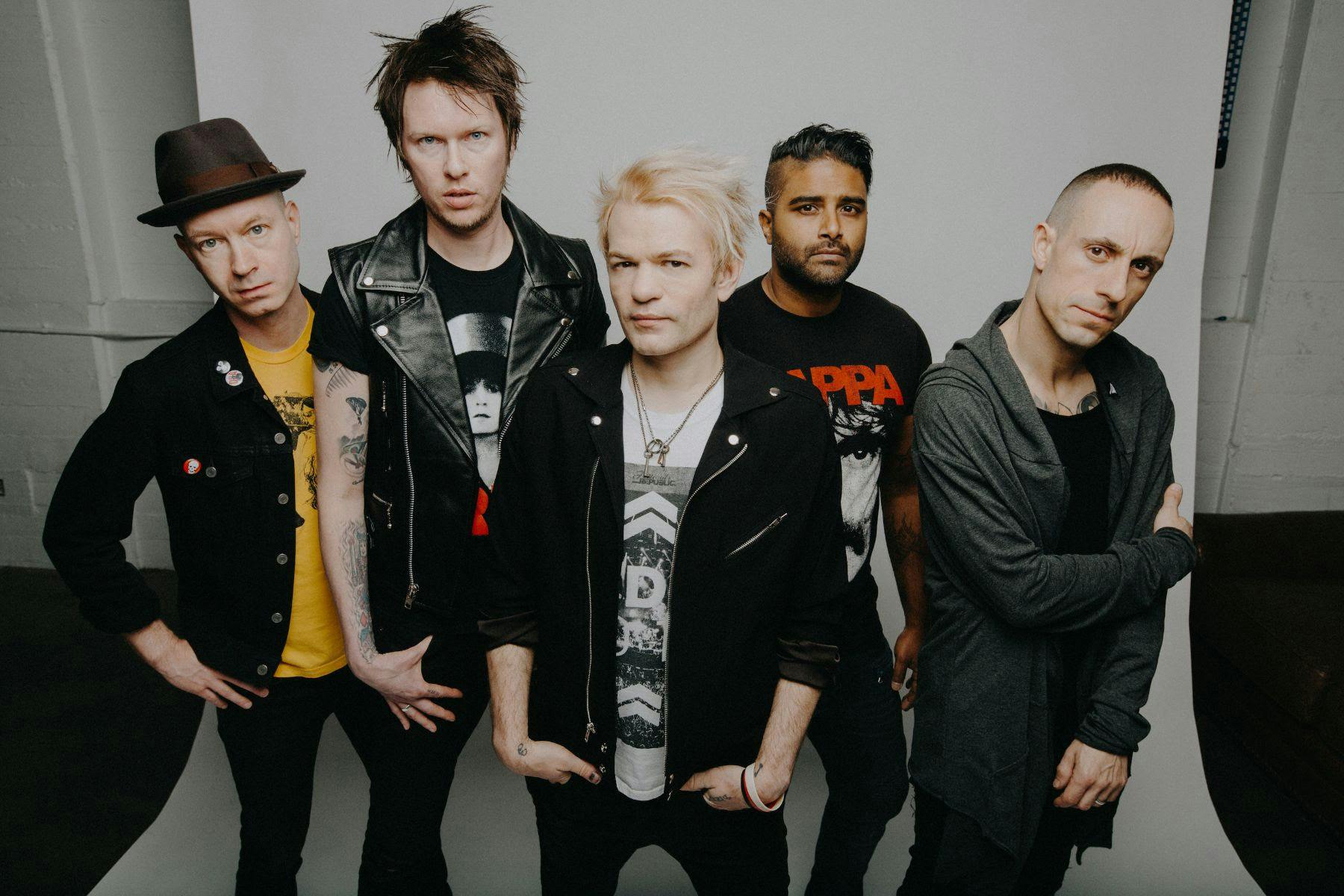Why did you choose Out For Blood to be the first single?
“Right now, we’re just trying to live our best lives, and I feel this song really represents that. When it comes to picking singles, we go with the consensus in the band; everyone offers an opinion, and when the same song starts to crop up multiple times, that’s the one we release. Out For Blood echoes the vibe of the record as a whole because it’s got so many parts. Plus, the majority of the album is heavy and aggressive, just like that song. There’s another track on the record I really like called A Death In The Family, and that’s got a similar vibe to Out For Blood. Overall, this is a heavy album.”
You produced and mixed this album yourself – why did you decide to do things without a producer?
“Like everything with our band, it happened by accident! I didn’t set out to do it; I’ve been producing records for a while, but when it comes to Sum 41 I’m usually the first to say, ‘Let’s get someone in.’ Once we started pre-production and making demos by ourselves, it got to the point where we weren’t really sure what a producer could add. Originally, I’d just made some rough mixes to pass on, but once I played them to people, everyone was like, ‘This sounds finished, you don’t need to involve anyone else.’ It was never the plan to do it that way.”
You’re working with Hopeless Records again on this record – how’s that partnership been?
“They’re great. We’ve been really fortunate when it comes to labels. In our early days, we were working with a major label, and they were really supportive and allowed us to do what we wanted, but after a while the people changed and it wasn’t such a great place, so we left. Now with Hopeless, it’s got the vibe our old label had when we first started with them. They’ve got a great vision for the band, they let us pursue things in our own way and, most importantly, everyone involved is on the same page.”
Looking to the future, you’ve got a U.S. tour in May and then you’re into festival season – will you be debuting new music at those shows?
“Definitely. We’ll certainly be playing Out For Blood, and possibly one or two others as well. We’ve just started rehearsals for the tour, so we’re figuring all that out now and deciding which of the new songs we’re itching to play live the most.”
Finally, what’s the atmosphere like in the Sum 41 camp at the moment?
“Honestly, it’s better than it’s ever been. We’ve always enjoyed being in this band, but after doing it for such a long time, you start to have those moments where you realise how hard it is to keep this thing going. But with that being said, the longer Sum 41’s career becomes, the more I appreciate just how special what we have with this band really is.”
Sum 41's new album Order In Decline is due out on July 19 via Hopeless
